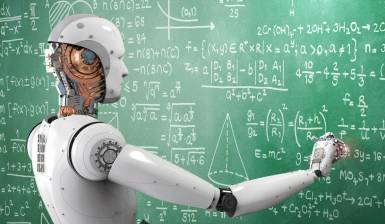Artificial Intelligence Education: European Perspectives on Implementing AI Technologies in Learning
 Posted date: 20 Apr 2024
Posted date: 20 Apr 2024
In the swiftly evolving landscape of education, the integration of Artificial Intelligence (AI) technologies has emerged as a transformative force, promising to revolutionize teaching and learning experiences. Across Europe, educators and policymakers are increasingly exploring the potential of how artificial intelligence is used in education like AI to enhance educational outcomes, address learning challenges, and personalize instruction. From adaptive learning platforms to intelligent tutoring systems, AI is reshaping the way knowledge is imparted and acquired in classrooms and beyond.
The European Context
Europe, renowned for its rich cultural heritage and diverse educational systems, is at the forefront of AI integration in education. With a strong emphasis on innovation and digitalization, European countries are leveraging AI technologies to create more inclusive, accessible, and effective learning environments.
Adaptive Learning Platforms
One of the key applications of artificial intelligence education is adaptive learning platforms. These platforms utilize machine learning algorithms to analyze students' learning patterns and preferences, allowing for personalized learning experiences tailored to individual needs. For example, in Finland, the "Adaptive Learning Initiative" aims to develop AI-powered tools that adapt to students' proficiency levels and learning styles, fostering greater engagement and mastery of subject matter.
Intelligent Tutoring Systems
Intelligent Tutoring Systems (ITS) represent another area of AI innovation in education. These systems employ natural language processing and machine learning techniques to provide personalized tutoring and feedback to students. In the United Kingdom, projects such as the "Digital Personal Tutor" initiative are exploring the potential of AI-driven virtual tutors to support students in their academic endeavors, offering guidance and assistance in real-time.
Data-Driven Insights
AI technologies are also instrumental in generating actionable insights from vast amounts of educational data. By analyzing student performance data, artificial intelligence education algorithms can identify learning gaps, predict academic outcomes, and inform instructional strategies. For example, in Germany, initiatives like the "Educational Data Mining" project utilize AI to extract meaningful insights from educational datasets, empowering educators to make data-driven decisions and optimize learning outcomes.
Ethical Considerations and Challenges
Despite the promise of AI in education, its implementation raises ethical considerations and challenges. Concerns regarding data privacy, algorithmic bias, and equitable access to AI-powered resources must be addressed to ensure that AI technologies serve the best interests of all learners. European countries are actively engaged in developing ethical guidelines and regulations to safeguard against potential risks and promote responsible AI use in education.
Looking Ahead
As AI continues to advance, its potential to revolutionize education in Europe and beyond is immense. By harnessing the power of AI technologies, European educators have the opportunity to create more personalized, adaptive, and inclusive learning experiences that empower students to thrive in the digital age. Through collaborative research, innovation, and responsible AI governance, Europe is poised to lead the way in shaping the future of education.
In conclusion, Artificial Intelligence in education represents a paradigm shift with profound implications for teaching and learning practices. European perspectives on implementing AI technologies in education highlight a commitment to innovation, inclusion, and ethical considerations. By embracing AI-driven solutions, European countries are poised to unlock new possibilities and transform education for generations to come.
Posted By

GSP Admin




